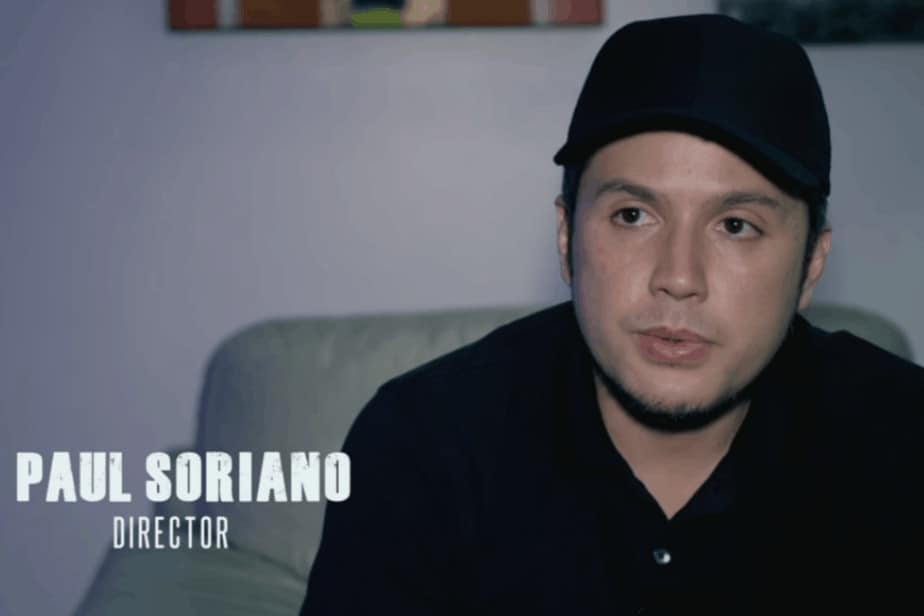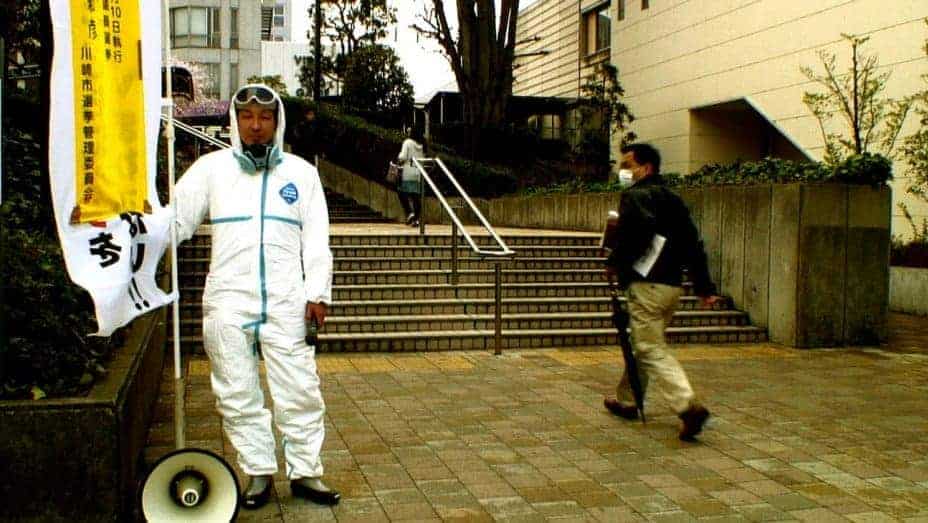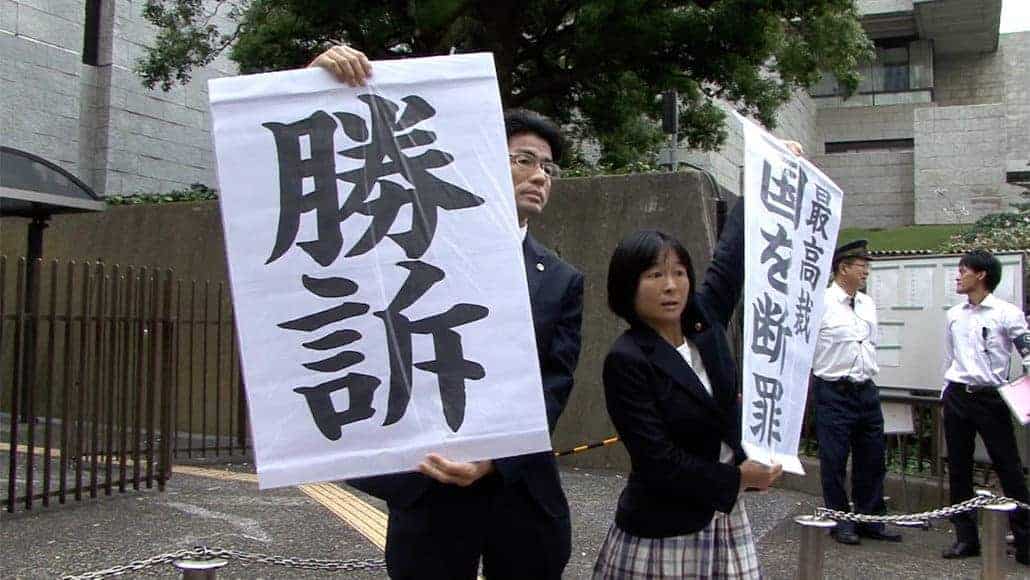Born in 1981 in Hong Kong, Chan Tai Lee graduated from the department of cinema and television at the Hong Kong Baptist University and then completed MA degree from Visual Culture Studies at The Chinese University of Hong Kong. Already during his masters studies he wrote a script for “Ip Man” (2008), which was a huge success and turned into a franchise, two of the sequels are also written by Chan Tai-lee. He remains a Pegasus Motion Pictures Limited principle script writer. In his directorial debut, “Tomorrow is Another Day”, he gathered most outstanding actors, including Teresa Mo and Ray Lui, cult 90s Hong Kong movie stars. Currently Chan is preparing a script for “Big Brother”, action film starring Donnie Yen, and the Ip Man universum spin-off, “Master Z”, with special appearances from Michelle Yeoh and Tony Jaa.
On the occasion of “Tomorrow is Another Day” screening at Five Flavours, we speak with him about his involvement in the Ip Man series, autism and the issues parents with children with special needs have to face, the realistic presentation of such images, and many other topics.

Can you give us some details about the path that led you from your studies to writing the scripts for the Ip Man series?
I was a student at film school, and after I graduated I really wanted to work in the movie industry but it was difficult for a new guy who just graduated. But some friends introduced me to some people and then I got a chance of writing scripts for other movies. When I wrote the script for my first movie, “Escape from Hong Kong”, I got acquainted with some people in the industry. After that, for a few years, I had no job, so I made some videos of my own, about a ceremony or a wedding for example, to make some money for myself. But I continued searching for jobs in the movie industry. And then, after maybe four of five years, after my graduation and my first movie, I got a chance from Edmond Wong, who is the son of the boss of Mandarin Films Distribution. Edmond Wong is actually the main scriptwriter of the Ip Man series and he asked me to join him. So I joined the creative team and director Wilson Yip, who also was involved in the scriptwriting of the series. That was the beginning, but after the movie was finished and got really good result in the box office, episode 2 and 3 were released and we worked together again in those. That was the path.
Why did you choose to write and direct a film about autism?
Actually, as a script writer, I only worked in commercial movies, but what I really wanted to do is something different than commercial movies, something about humanity or more independent content. So after 10 or maybe 15 years in the industry I built some relationships with filmmakers and investors. Therefore, I tried to write a script for myself. In the past, I shot a short film, which is about my mother, and I think this is the best of my works and even got a prize in some independent film awards in Hong Kong. So when I made my first feature film, I wanted to portray the huge, motherly love. So, when I was brainstorming, I remembered seeing a mother with a child with special needs. She was holding his hand and was running to chase the bus. I think this person is very beautiful and the whole concept romantic. That made me think a lot about the mother, about her back story, how is her life living with a child with special needs. So, I tried to find my answers by writing a script about such characters. And the reason I chose autism as the special need is because it can be performed by actors, as the way they appear is the same as us, but it is their thoughts that they cannot communicate with the rest of us.
And because I wanted to be more dramatic, I added the character of the husband in the script, who leaves his family because of an affair and then the mother wants to take revenge from the young woman because she wanted to get the father back and make the family complete again. And If I told an investor that I have a story about just autism, I think they would not be interested. Therefore, I also presented it as the story of a housewife who wants to take revenge from a young woman. So I thought this can result in some very dramatic scenes, and even a commercial scenario, so this is much easier for me to pitch.
So the movie is actually a kind of mixture of two genres, in some parts a revenge movie, and in some parts a touching family movie. So one of my goals was to mix these two elements, to make it organic.

So, that is why you included the two very violent scenes with the stabbing with the knife?
The scene with the stabbing is actually a psychological description of the mother, rather than some exciting fighting scene, it is different from the typical thriller. But I think there is still much room for improvement, but on the script, the concept is ok. But the direction, the treatment of the scene, maybe it is too extreme. I think this part could be much better, I realize that.
The film shows that the State is not involved, does not help parents with children with special needs. Is that the actual case in Hong Kong?
In Hong Kong, children with special needs can only study until secondary school, which means until 17-18. After that, there is nothing more and they cannot actually work after they graduate, they have nothing to do, they just stay at their home with their parents. There are some centers actually for families with children with special needs, where they can relax but they just run for two or three hours a day. So it is still very difficult for them. There are some special homes where the family can apply but usually they need to wait 20 or 30 years to get accepted. So you can see that is a big problem.
Can you give some details about the last scene in the movie?
The film is actually narrated from the point of view of the mother, 90% of the movie actually, but what I wanted to say with the last part is that people around autistic people think that they do not understand what is going on around them. But actually they do, they just cannot communicate their understanding, and their perception is different than ours. So what I wanted to show is that the son knows what the mother is thinking, and so, after the scene in the boat, they go back into the house, and the mother prepares everything and wants to go to the house of the other woman, but the son stops her, and I reveal everything to the audience, as through this whole process, the son is looking at his mother. So, he knows everything: of course in a different fashion than us, but he actually knows what his mother is planning to do and he knows that if his mother proceeds in killing this woman, he will also lose his mother. So he does not want this to happen and he stops her, just by crying.
What kind of research about autism did you do for the film?
Before shooting this movie, I actually did not know much about autism, but as a preparation for the shooting, during pre-production, I watched a lot of videos on Youtube, to try and understand how their lives truly are. I found some documentaries in Hong Kong and I found two families with children with similar issues, to study them. And together with the actors and actresses, we studied them for four months, on and off, of course. We tried to be friends with them, like having dinner with them, in order to understand their inner world and their everyday life but also to observe how the autistic son (the real one) speaks, how he moves and about his emotions. We tried to realize their inner world through their parents, because they live together for 20 or 30 years and they understand more than us, obviously, and so we tried to get this knowledge from them
When I was in the location, one father of one family came with me everyday, and acted as consultant about autism, because there are different aspects of autism, and I found it very difficult to guide the actor, although I already did the research for three or four months. So for this part, the consultant was very important, so you can see how Ling Man Lung presents the body language of his character so well, like for instance, when he is eating, the way he holds the spoon. And because Ling is a very experienced theater actor, we wanted to know more about the inner world of the autistic, because anything else than a very realistic performance would not be enough for both of us.
For example, when the other girl comes to their apartment, he is very communicative of his emotions. You can see how Ling changes from quiet and easy to uncomfortable and tries to shout to the woman. I think that is the most successful part of his performance.

So, was it difficult for him to present the part as realistically as he did?
Of course it was difficult, but through the research we did and with the presence of the consultant, and of course, his hard work, he did a very good job.
Was he physically hurt? Because the scene where he is hitting his head looks so real.
Of course not, there were safety measures and the table, for example, was protected. The sound that you hear and makes this scene so realistic was actually added during editing.
How did you end up with a veteran like Teresa Mo in your film?
When I started my script, I already had Teresa Mo in my mind for the part. But before the production started, although I knew her, she did not know me. So I got the script to her through my boss, and after she read it, she promised me to be the actress. She thought that the part left much room for her to perform and found the role very meaningful. After that, and before I went to production, I spent much time with her discussing about the part, so we had a relationship already before we started shooting.
Can you give us some details about the music in the film?
I do not know much about music, I am not a musician. So adding music to the film is similar to writing a script for me. Its purpose is to heighten the emotion of the scenes, particularly when the drama is not enough. So the composer, Dai Tai, gave me some reference before we went to production. So I had some reference regarding the style of the music, that was to have elements from the Middle East. So after he read my script he thought that there should be some sort of a music intrusion in the scenes, so you can hear that, like a soprano for the women, to present the interaction between the mother and the son. The mood of the music was decided by the composer and I just gave him comments, and when I thought it was good it was really good, but when it was not so good, I told him to make some adjustments

The movie has a lot of scenes in public places, like trains and the market. Was it difficult to shoot these scenes, since Hong Kong is such a crowded place?
Nowadays is more difficult, because we need to apply the forms before we go to the shooting locations, and some times the process can last even for a month. But this is a low budget movie so everything is a bit messy, especially in finding some location. So, the upper housing estate, the main location of the movie, because we were allowed to shoot there by the government , we had to follow the rules.I only had four days for the public areas' scenes, so the schedule was very tight. And so, for the scene in the supermarket, I was not completely satisfied, because I wanted an actual market with many shops etc, but the one in the movie just has a few shops. But I tried to interpret it into a drama, so the mother wants to buy something but the son wants something else. So there is another interpretation
What is your opinion of Hong Kong cinema at the moment?
Nowadays, it is quite difficult for us in Hong Kong to make movies but I can see some change at the moment, because there are so many new directors coming, since the experienced ones now work in China, they have beeb for the past ten years. So they made room for us to make some movies. Most of us young directors have attended a film school so you can see that our movies are more about realistic themes, social issues and everyday life, very different themes from before. So there may be a movement in the film industry but the reality is that these movies are all very low budget and we cannot get very good box office numbers, even though our movies are presented in film festivals and even get awards. And particularly Hong Kong audience is commercially oriented. In terms of aesthetics, this is a good thing, but I am not sure if this is good for the whole industry. I think commercial movies are important because they can support the whole industry and give work to a lot of people. But nowadays, the only way to get a big budget is through co-productions with China, but then the content has to be different…
What about your future projects?
I am still thinking, but since this movie was about a mother, a woman, maybe next time it is about a man. What I am sure though, is that I want to make more movies about social issues, particularly about a man who faces a significant social issue and how he manages to overcome it















